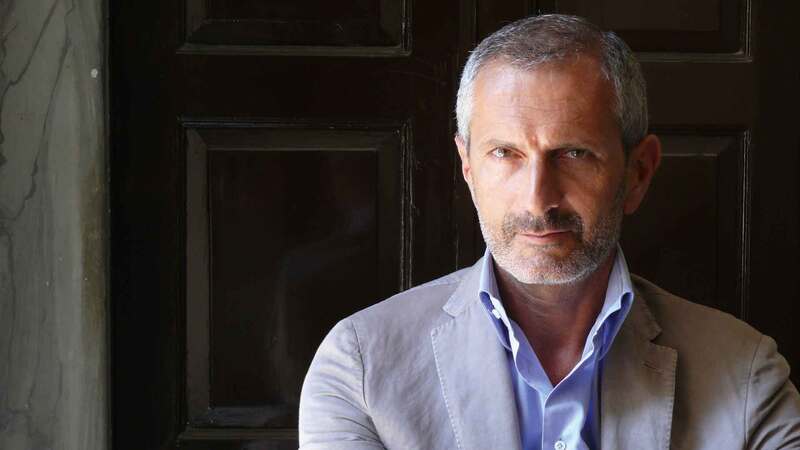You are viewing your 1 free article this month. Login to read more articles.
Jennifer Clement: Interview
“The best thing you can be in Mexico is an ugly girl,” writes Prayers for the Stolen’s narrator Ladydi Garcia Martinez, as her mother attacks her face with a piece of charcoal.
All of the babies on Ladydi’s mountain in Guerrero are born boys, or so their parents say, until some of them turn into girls aged about 11 and have to start hiding from traffickers in man-made holes in the ground.
Jennifer Clement’s third novel is based on Mexico’s human-trafficking trade which, she says, is only getting worse. Girls are “stolen” from their families as teenagers. At best they are able to write to their families and see them once every few years before inevitably ending up in jail. At worst, they are never seen again.
“A human being you can sell many, many times, whereas a bag of drugs you can sell once,” Clement, who has lived in Mexico since she was a year old, explains. “The trafficking of women is so horrific. You’d think that in this day and age there would be more equality and more fairness, and from what you see, it’s just not true.”
Ladydi and her friends constantly have one ear listening out for the sound of approaching wheels where they live, on an almost-deserted mountain. One day, men in a black SUV carry off Ladydi’s friend Paula. She returns a year later with a tattoo snaking around her wrist, and she doesn’t speak for weeks. “I was just like a plastic water bottle that everybody drank out of,” she eventually says of her year as a stolen girl.
The inspiration for the novel came when a woman from Guerrero—a place where “poppies are grown and there are massive heroin labs hidden in the jungle”—told Clement: “‘what we do is, we dig holes.’ I just couldn’t get that image out of my mind,” Clement says. “They’re young girls, actually digging a hole in the cornfield and hiding there. In the novel, the scene where Ladydi is in the hole and the SUV stops above the hole and all the exhaust fumes are coming down – I just started to imagine what that was like.”
Clement spent 10 years researching how drug and human trafficking affects Mexican women. Although there are no exact statistics, the US State Department estimates that between 600,000 and 800,000 people are trafficked across international borders every year (not including those trafficked within national borders). Most of those stolen and sold are subjected to sex trafficking and other forms of modern slavery: forced labour, debt bondage or pornography.
Mexico is a “warren of hidden women”, Clement says. She spent years talking to the wives, girlfriends and children of traffickers—who lived in hiding places with fake façades of supermarkets or convents—who hadn’t seen daylight in years. One family she spoke to, “a very rich family from Monterrey”, lost their daughter to traffickers when she went to the cinema one evening with friends. They received a phone call from a man who said if they ever wanted to see their daughter again, they should stay quiet. After two and a half years of no contact they were finally reunited—she was married to a drug trafficker and had two children. “He just saw her and liked her and said ‘that’s for me’,” Clement says. “They just had to accept that situation, otherwise they’d all be killed.”
Women behind bars
A third of Prayers for the Stolen is set in a women’s jail. Clement spent “a lot of time” in the Santa Martha Acatitla Prison in Mexico City talking to the incarcerated women in various workshops, where they would make collages from pictures cut out of magazines. “They would say, ‘here I was innocent and happy’, and there would be a sunset and a flower, ‘and then I met this really bad man’, and there would be a cutout of Brad Pitt,” she laughs. “I have so many stories that are not in the novel, obviously you have to serve the book . . . but there are tonnes of stories that are heartbreak after heartbreak.”
One woman Clement spoke to had married a man she met and fell in love with from the nearby men’s jail—“in jail you can have conjugal rights, so if you’re going to be in jail for 25 years you might just marry a stranger, because that’s the only way you can have sex”—and was told one day that he had been stabbed and died. So she married another man from the same jail, “a very religious, controlling man; she felt like she’d made a big mistake”, only to receive a letter taped with blood-soaked gauze from her beloved first husband, writing to tell her he had survived and here were his bandages to prove it. “She was in a really bad state,” Clement said. “She’s since been released, but you can’t imagine stories like that. It sounds like such a cliché, but of all the women in jail, five per cent are really bad people, and the other 95 per cent are there because a man has got them involved in something.”
PEN Mexico
Clement spent three years as the president of PEN Mexico, investigating the killing of journalists in the country. “The problems have gone beyond drugs,” she says. “Now it’s become a mafia where there’s extortion; there’s trafficking of people; there’s all sorts of crime that surrounds drug trafficking. The side with the women is the side that’s least taken into consideration . . . there’s no recourse. If they steal your daughter, where do you even begin to try and find her? The law isn’t helping.”
She cites recent press coverage of the ningún nombre—“no name” people who are being buried all over the country—as a deeply disturbing revelation, but says that most people still aren’t aware of the dangers of it. “People have ideas perhaps about the killing of women in Juarez, but maybe not a book that tells a story of one woman and what happens to her and her friends,” she says.
“The other books have been written by men—they’re very violent and sexual and actually, even though this is a very violent book, there is no obvious violence or sex. Narco [Cartel-based Mexican crime] literature tends to be really explicit; you have tremendous table-dancing scenes and prostitution and decapitation, that is the norm. But what interests me first and foremost, more than the subject matter, is the language, the form and the way it’s written.”
Despite dealing with a lot of dark issues, Prayers for the Stolen is also a funny book. Similar in narration to the inquisitive Darling in NoViolet Bulawayo’s We Need New Names, the strong female characters in Clement’s novel still manage to find humour in their fearful existence. “Dickens wrote comedy and tragedy together and called it streaky bacon,” Clement says. “In almost all of my books tragedy and comedy co-exist. It’s just the way it comes out.”
At the end of the novel Ladydi’s story is wrapped up in an ambiguous way. I ask if the women Clement talks to in jail ever get happy endings. “A few of them,” she says carefully. “Certainly the women in hiding, some have been able to leave the country to Spain and have managed to get out through this network. But happy endings are the exception. The people that get into the Underground Railroad and get out are very lucky . . . most don’t.”
Prayers for the Stolen is out now, published by Hogarth.














